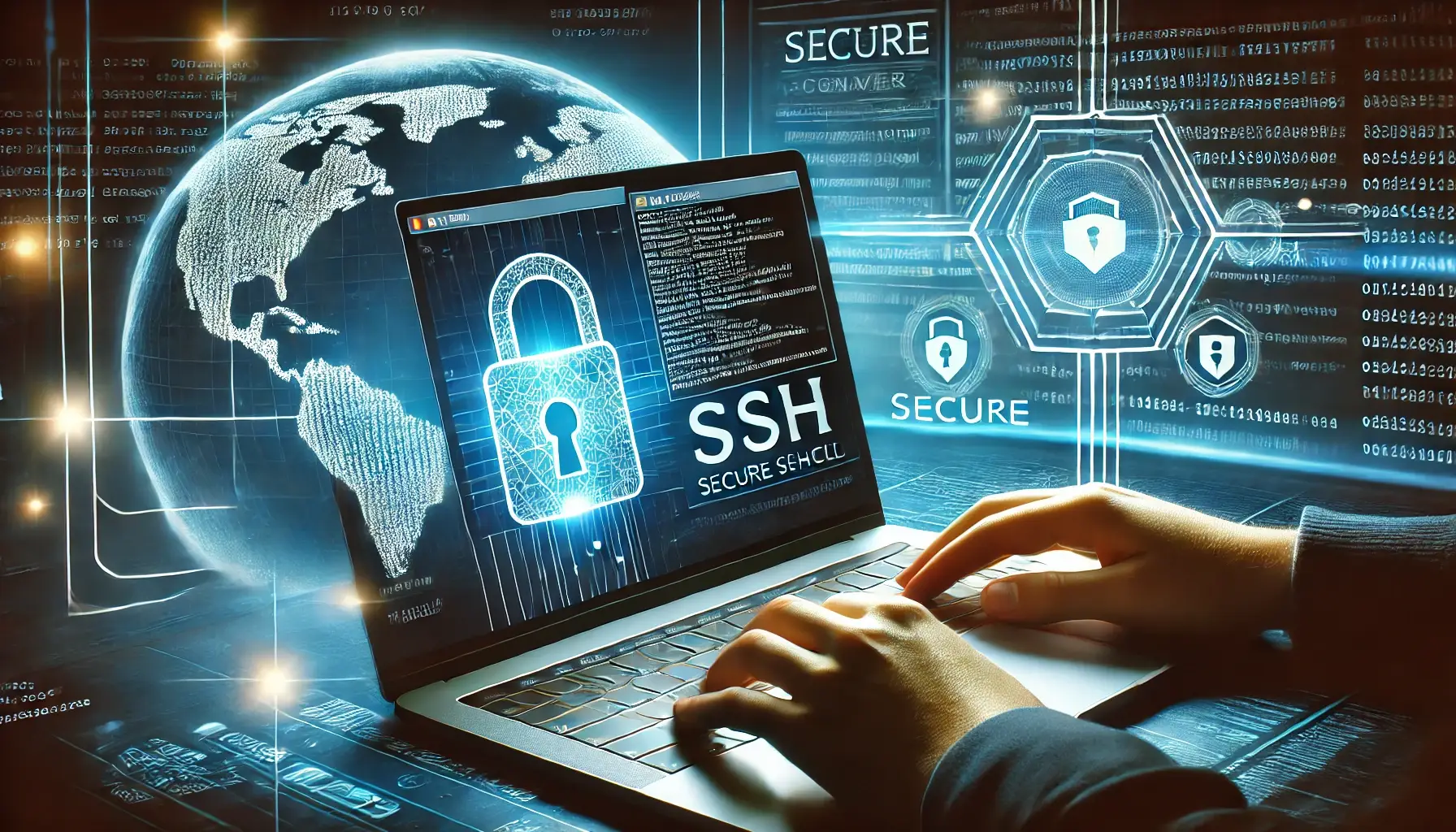In today’s interconnected world, ensuring secure communication between devices is not just a luxury—it’s a necessity. As cyber threats grow in complexity, tools designed to safeguard sensitive data have become vital. One such indispensable tool is SSH, or Secure Shell, a protocol that provides a secure method to access and manage devices remotely over a network. But exactly what is SSH, and why is it so essential? Understanding what is SSH and how it works can help individuals and businesses enhance their digital security. In this guide, we’ll dive deep into the workings of SSH, its numerous benefits, practical applications, and why learning what is SSH is crucial for anyone managing sensitive systems.
Table of Contents
What is SSH?
SSH, or Secure Shell, is a cryptographic network protocol that provides a secure way to access and manage devices remotely. It was developed as a replacement for insecure protocols like Telnet and FTP, which transmitted data in plaintext, making it vulnerable to interception. By encrypting data and ensuring authentication, SSH facilitates secure communication across unsecured networks.
Why is SSH Important?
With the rise of remote work and cloud-based systems, accessing servers and devices securely is more critical than ever. SSH plays a pivotal role in:
- Securing remote access: It ensures encrypted communication between users and servers.
- Preventing cyberattacks: SSH helps shield sensitive data from eavesdropping, man-in-the-middle attacks, and unauthorized access.
- Enhancing system management: System administrators use SSH to manage and troubleshoot servers securely.
How Does SSH Work?
SSH operates on a client-server model and typically uses port 22 for communication. Here’s a step-by-step breakdown:
- Initiation: A client initiates a connection request to the server.
- Authentication: The server authenticates the client using public-key cryptography.
- Session Establishment: Once authenticated, an encrypted session is established.
- Data Exchange: Both parties can now exchange data securely over the encrypted channel.
Key Components of SSH
1. Encryption
SSH uses symmetric, asymmetric, and hashing techniques to secure data.
- Symmetric Encryption: Encrypts data using the same key for both sender and receiver.
- Asymmetric Encryption: Uses a pair of keys (public and private) for secure communication.
- Hashing: Ensures data integrity by creating a unique hash value for transmitted data.
2. Authentication
Authentication ensures that only legitimate users can access the server. Common methods include:
- Password Authentication: The simplest form, but less secure.
- Public Key Authentication: Involves a key pair and is more secure than passwords.
- Two-Factor Authentication (2FA): Adds an extra layer of security.
3. Port Forwarding
SSH allows port forwarding, redirecting network traffic through the encrypted SSH connection.
Common Use Cases for SSH
1. Remote Server Management
System administrators use SSH to remotely access and configure servers.
2. Secure File Transfer
With protocols like SCP (Secure Copy Protocol) and SFTP (SSH File Transfer Protocol), SSH facilitates secure file transfers between devices.
3. Network Diagnostics
SSH enables administrators to perform network diagnostics, including monitoring and troubleshooting.
4. Tunneling and VPN Replacement
SSH can create secure tunnels, effectively replacing traditional VPNs for certain use cases.
Advantages of SSH
- Enhanced Security: Encryption and authentication protect sensitive data.
- Versatility: SSH is used for remote access, file transfers, and tunneling.
- Compatibility: Available on various operating systems like Linux, Windows, and macOS.
Setting Up SSH
Step 1: Install SSH
Most operating systems come with SSH pre-installed. For Linux and macOS, use:
sudo apt-get install openssh-server
For Windows, you can install OpenSSH via PowerShell.
Step 2: Start the SSH Service
sudo service ssh start
Step 3: Generate SSH Keys
ssh-keygen -t rsa -b 4096
Step 4: Connect to a Server
ssh user@server_ip
SSH in Action
Imagine you’re managing a remote server that hosts your website. Using SSH, you can:
- Access the server securely.
- Transfer files between your local machine and the server.
- Monitor server performance.
All without exposing sensitive information to potential cyber threats.
FAQs
What is SSH used for?
SSH is used for secure remote access, file transfers, and network management.
Is SSH free to use?
Yes, most implementations of SSH, like OpenSSH, are free and open-source.
What is the difference between SSH and Telnet?
Unlike Telnet, SSH encrypts data, making it more secure for communication.
Can SSH be hacked?
While SSH is highly secure, weak passwords and misconfigured settings can make it vulnerable.
Is SSH only for Linux?
No, SSH is available on various operating systems, including Windows and macOS.
What port does SSH use?
SSH typically uses port 22, but it can be configured to use other ports for added security.
Conclusion
In the world of secure communications, SSH stands out as a reliable and indispensable tool. Whether you’re managing remote servers, transferring sensitive files, or tunneling network traffic, understanding what is SSH is crucial. With its robust encryption and authentication features, SSH ensures that your data and systems remain protected from unauthorized access. By implementing SSH in your workflows, you not only enhance security but also streamline your operations.



